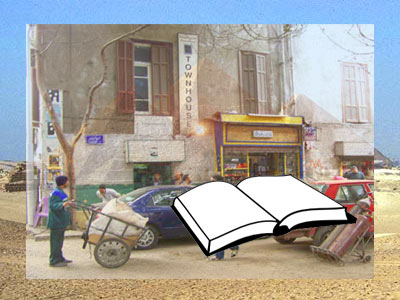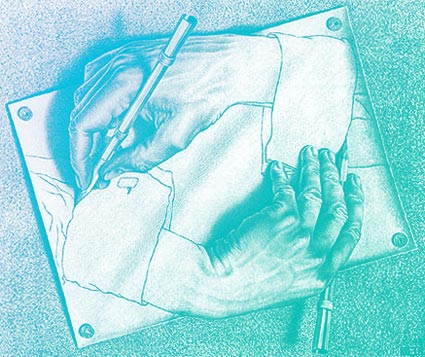
New Museum (5th Floor)
August 4 — September 26, 2010
235 Bowery
New York, NY
The Bidoun Library Project at the New Museum is a highly partial account of five decades of printed matter in, near, about, and around the Middle East. Arrayed along these shelves are pulp fictions and propaganda, monographs and guidebooks, and pamphlets and periodicals, on subjects ranging from the oil boom to the Dubai bust, the Cold War to the hot pant, Pan-Arabs to Black Muslims, revolutionaries to royals, and Orientalism to its opposites.
Most of the 700-odd titles on display were acquired specifically for this exhibition. The shape of the collection was dictated primarily by search terms on the World Wide Web rather than any intrinsic notion of aptness or excellence. Searching for “Arab,” “paperback,” “1970s,” and “<$3,” we acquired dozens of books about the Oil Crisis, the cruel love of the Sheikh, and the lifestyles of the nouveau riche. A similar search for “Iran” produced its own set of types and stereotypes. We did not set out to find the best books about, say, the Iranian revolution; in a sense, we looked for the worst. Or, rather, we tried to look at what was there.
The result is less a coherent group of titles or texts than an assortment of books as things, sorted roughly into four themes or units. Catalogues hang from the ceiling in front of each shelf cluster. Inside is a documentation of a selection of books from that shelf, in dialogue with excerpted texts and images from the library as a whole.
The Bidoun Library includes a program of Iranian film, video, and television culled from low-fidelity DVDs and VHS tapes that circulate among Iranians in the Diaspora. The selection includes post-revolutionary variety shows, music videos, and other totems of middlebrow—unibrow?—culture. This is an Iranian cinema unlikely to be shown at Lincoln Center.

New Museum (5th Floor)
August 4 — September 26, 2010
235 Bowery
New York, NY
The Bidoun Library Project at the New Museum is a highly partial account of five decades of printed matter in, near, about, and around the Middle East. Arrayed along these shelves are pulp fictions and propaganda, monographs and guidebooks, and pamphlets and periodicals, on subjects ranging from the oil boom to the Dubai bust, the Cold War to the hot pant, Pan-Arabs to Black Muslims, revolutionaries to royals, and Orientalism to its opposites.
Most of the 700-odd titles on display were acquired specifically for this exhibition. The shape of the collection was dictated primarily by search terms on the World Wide Web rather than any intrinsic notion of aptness or excellence. Searching for “Arab,” “paperback,” “1970s,” and “<$3,” we acquired dozens of books about the Oil Crisis, the cruel love of the Sheikh, and the lifestyles of the nouveau riche. A similar search for “Iran” produced its own set of types and stereotypes. We did not set out to find the best books about, say, the Iranian revolution; in a sense, we looked for the worst. Or, rather, we tried to look at what was there.
The result is less a coherent group of titles or texts than an assortment of books as things, sorted roughly into four themes or units. Catalogues hang from the ceiling in front of each shelf cluster. Inside is a documentation of a selection of books from that shelf, in dialogue with excerpted texts and images from the library as a whole.
The Bidoun Library includes a program of Iranian film, video, and television culled from low-fidelity DVDs and VHS tapes that circulate among Iranians in the Diaspora. The selection includes post-revolutionary variety shows, music videos, and other totems of middlebrow—unibrow?—culture. This is an Iranian cinema unlikely to be shown at Lincoln Center.
June 14, 2010
Townhouse Gallery of Contemporary Art
Invisible Publics
May 23 – June 20 2010
10 Nabrawy Street off Champollion Street
Downtown Cairo, Egypt
The show will feature works and acts by Dora Garcia, Sharon Hayes, Johanna Billing, Johan Svensson, Nikos Arvanitis, Sarah Pierce, Miklos Erhardt + Little Warsaw, the Complaints Choir in addition to Bidoun Video 2010 with programmes curated by Bidoun and guest curators Masoud Amralla Al Ali, Aram Moshayedi, and the duo of Özge Ersoy and Sohrab Mohebbi.
More information at Art Agenda
March 21, 2010
Forms of Compensation
Babak Radboy or Ayman Ramadan
March 23 — April 14, 2010
Townhouse Gallery: 10 Nabrawy Street, off Champollion Way, Downtown Cairo

Forms of Compensation opens this Tuesday March 23 at the Townhouse Gallery in Cairo.
‘Forms of Compensation’ is a series of 21 reproductions of iconic modern and contemporary artworks, with an emphasis on sculptures, paintings and prints by Arab and Iranian artists. The series was produced in Cairo by craftspeople and auto mechanics in the neighborhood around Townhouse Gallery, commissioned by Babak Radboy and overseen by Ayman Ramadan, working from installation shots of the original artworks, along with the instruction that each copy should differ in one small way from its referent.









